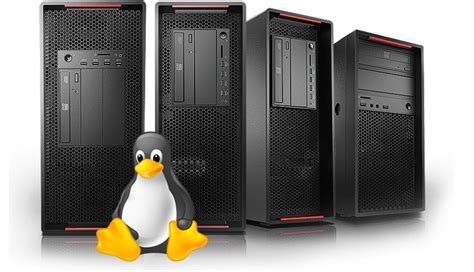Introduction
If you’re looking for a powerful hosting solution, a Linux dedicated server could be the perfect option. This type of server provides you with exclusive access to all the resources of a physical server, giving you complete control over your hosting environment. In this article, we’ll explore what Linux dedicated servers are, how they work, and why they’re an excellent choice for businesses and individuals alike.
What is a Linux Dedicated Server?
A Linux dedicated server is a physical server that’s entirely devoted to a single user or organization. Unlike shared hosting, where multiple users share the same server resources, a dedicated server provides exclusive access to all the resources of the server, including CPU, RAM, and storage. This means you can run resource-intensive applications and websites without worrying about performance issues or downtime.
How Does a Linux Dedicated Server Work?
A Linux dedicated server operates like any other server, but with one key difference – it’s entirely dedicated to a single user or organization. When you sign up for a Linux dedicated server, you’ll receive exclusive access to all the resources of the server. This means you can customize the server to suit your exact needs, install any software you require, and configure the server to optimize performance.
Why Choose a Linux Dedicated Server?
There are several reasons why a Linux dedicated server could be the ideal hosting solution for your needs. First, dedicated servers provide unparalleled performance and reliability. With exclusive access to all the resources of the server, you can run resource-intensive applications and websites without worrying about performance issues or downtime. Second, dedicated servers give you complete control over your hosting environment. You can customize the server to suit your exact needs and install any software you require.
Choosing the Right Linux Dedicated Server
When choosing a Linux dedicated server, there are several factors to consider. First, you’ll need to decide on the amount of RAM, storage, and CPU cores you require. You’ll also need to choose a hosting provider that offers excellent uptime guarantees, reliable support, and competitive pricing. Many hosting providers offer managed dedicated server solutions, which means they’ll take care of server maintenance and updates for you.
Setting Up Your Linux Dedicated Server
Setting up your Linux dedicated server can seem daunting, but it’s relatively straightforward with the right guidance. You’ll need to choose a Linux distribution, such as CentOS, Ubuntu, or Debian, and install it on your server. You’ll also need to configure your server settings, install any necessary software, and secure your server against potential threats.
Optimizing Your Linux Dedicated Server
Once you’ve set up your Linux dedicated server, you’ll want to optimize it for performance and security. This can involve configuring your server settings, installing performance-enhancing software, and securing your server against potential threats. You may also want to consider setting up a backup solution to ensure your data is always safe and secure.
The Benefits of a Linux Dedicated Server
There are several benefits to choosing a Linux dedicated server. First, dedicated servers provide unparalleled performance and reliability, making them an ideal choice for businesses and individuals who require high levels of performance and uptime. Second, dedicated servers give you complete control over your hosting environment, allowing you to customize the server to suit your exact needs. Finally, Linux dedicated servers are highly secure, with advanced security features and regular updates to protect against potential threats.
Conclusion
If you’re looking for a powerful hosting solution, a Linux dedicated server could be the perfect option. With exclusive access to all the resources of the server, unparalleled performance and reliability, and complete control over your hosting environment, a Linux dedicated server provides an excellent hosting solution for businesses and individuals alike. By following the tips and guidance in this article, you’ll be well on your way to setting up and optimizing your Linux dedicated server for maximum performance and security.
